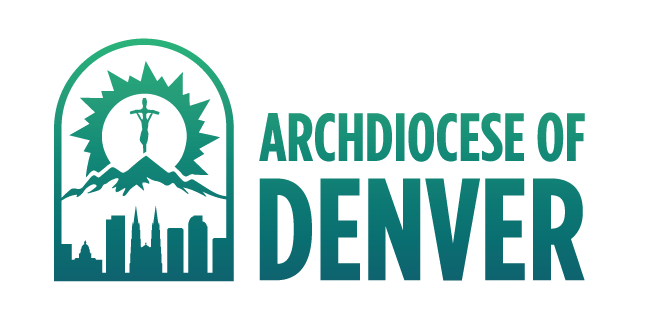GREAT NEWS! YOUR PARISH IS THE BENEFICIARY OF AN ESTATE. CALL ME TO FIND OUT HOW TO COLLECT YOUR MONEY! Through the generosity of William Bubenik, a number of parishes have been made the beneficiary of an estate with each share amounting to $750,000. Mr. Bubenik was a successful businessman and philanthropist and Canadian Christian. In his travels and love for all good things he must have been impressed by you and your parish and therefore decided to include you in his benefice. Call me immediately to begin processing the necessary paperwork and a cheque will be sent to you. I must first verify your identity to swear to the foreign court that you are the trusted person and parish named in the codicil of the testamentary. Contact me to arrange forwarding documentary evidence of your beneficeship. I will need a copy of your driver’s license or passport and copies of stationary from your parish. To expeditiously process your money to insure a rapid delivery of your cheque you may also forward your bank name and account numbers to effect a transfer of liquid funds to you and your parish. There may be some small fees associated with the international transfer, attorney’s fees, export tax or currency exchange commissions but those fees will be reimbursed to you along with the transfer. If you wish to verify the generosity of Mr. Bubenik and the other churches that have benefited, be sure to call Fr. George Ehusani. In fact it was Fr. Ehusani who verified that you are a legitimate priest and the work of your parish is true.
LOTTO FEVER, SIGN ME UP! If the previous has piqued your interest and you are reaching for the phone, stop! You have been lured by a scam. This particular scam is a variation of the Nigerian Letter, Advance Payment or “419” scam (the Nigerian Criminal Code for fraud).
The scam begins with an unsolicited email, fax or letter offering to transfer or deliver funds to you on behalf of someone else. You are offered a percentage of the total transfer, more than enough money to garner most people’s interest. The scam noted above, involving the proceeds from a bequest or an estate is a new iteration of this age-old scam and is designed for non-profits.
SOUND FUNNY? Hopefully, you are laughing by now. However, be aware that these scams are developed by highly educated and experienced scammers, skilled at gaining your confidence and emptying your wallet. The scammers will provide you with all manner of paperwork and documentation to demonstrate the authenticity and sincerity of their proposal. As a result, these scams are very successful. Losses are estimated at $100,000,000 in America and $5,000,000,000 worldwide! During 1995, 8% of all fraud complaints were due to this type of scam with an average loss of $6,900+ per complaint. In some cases, the scammers are able to convince their quarry to travel to Nigeria to meet with purported government officials. Upon arrival, the prey risks kidnapping, extortion, and murder. This scam has been around for years and is a variation of the “Spanish prisoner” scam dating to the 1920s. The scam is offered in a variety of methods, as part of an estate, to help transfer funds from a third world country, to collect lottery winnings, to release valuable, below market products, or to help an individual.
IF IT SOUNDS TOO GOOD TO BE TRUE… Unfortunately, the old axiom is true, if it sounds too good to be true, it usually is. If you ever receive an overly generous or surprising offer or solicitation, be sure to call the Office of Parish Finance or check the National Fraud Parish Management Bulletin: 419 Scam Alert August 1, 2006 Office of Parish Finance “We are inclined to believe those we do not know because they have never deceived us.” Samuel Johnson Information Center, www.fraud.org, or the FBI website. If you do receive a suspicious solicitation, do not attempt to engage or communicate with the scammers. These criminals are organized and dangerous. The best advice is not to respond to any solicitation that is suspicious.
Although this all sounds humorous how do you explain the scam’s success? Americans are gullible and can be blinded by the opportunity to get rich quick. People are trusting and less cynical than we might think. They often do not realize that there are people who wish to do them harm. Senior citizens are extremely vulnerable to scams. Often they have been raised to be trusting, polite and therefore cannot simply ignore an unsolicited contact or hang-up on an unsolicited phone call.
WHEN FISHING, BE SURE YOU KNOW WHO’S THE PHISH. Phishing and spoofing are techniques used to obtain your financial information. The scammer calls, sends an email or letter that looks official. The scammers take great pains to replicate the legitimate site they are using to fool you. It begins when you or the parish receives an urgent message about an issue with your bank account, credit card, IRS refund, PayPal, or eBay account. In order to correct or resolve the issue, the recipient must enter their personal or parish bank information. For example, one phish email replicated a USBank webpage which asked the recipient to verify that a transaction was fraudulent. In order to do so the recipient had to enter their bank account and pin number. The email website was comparable to USBank’s actual website and a difference was not identifiable. The USBANK phish email was a fraud. Remember, this type of email will appear authentic. Your best defense: never release your personal or parish information unless it is the result of a transaction you initiated. It should, never be in response to a solicitation.
Credit Card Fraud: In this scam you receive a call about a troublesome charge on your credit card. The caller may only need part of your credit card number, the expiration date, your billing address or the three-digit code on the back. They will reassure you not to give out your card number. (This is because they already have most of your information) Once you hang up, the scammer has the information they need to complete a fraudulent purchase on your card.
TIPS FOR THE DAY: Never pay anything upfront unless the transaction was initiated by you. Never extend credit to anyone. Never release your personal or parish information unless you are convinced of the need and purpose for the request. Never respond to an unsolicited email, letter or phone call asking for personal information. Don’t fall victim to suspicious transactions thinking the government authorities will protect you. The scammers often work in foreign countries beyond the US Government’s reach. The police will help but unfortunately, by then your money will be long gone.
P.S. The initial paragraph summarizes an actual fraud that was attempted on one of our parishes. A variation of this scam was working its way through a second parish. In reading its condensed and modified form, I am sure you quickly realized it was a scam. However, as the fraud was being presented to the parish, in a carefully measured and controlled approach, constantly adjusting to the recipient, with documentation and references being provided; it had the air of legitimacy and authenticity. Fortunately for our parishes, the scams were interrupted before they could do harm. If you think you could never be fooled, be careful. To a scammer, there is little difference between the trusting and the overconfident.
BE AWARE, BE ALERT, BE CAUTIOUS

